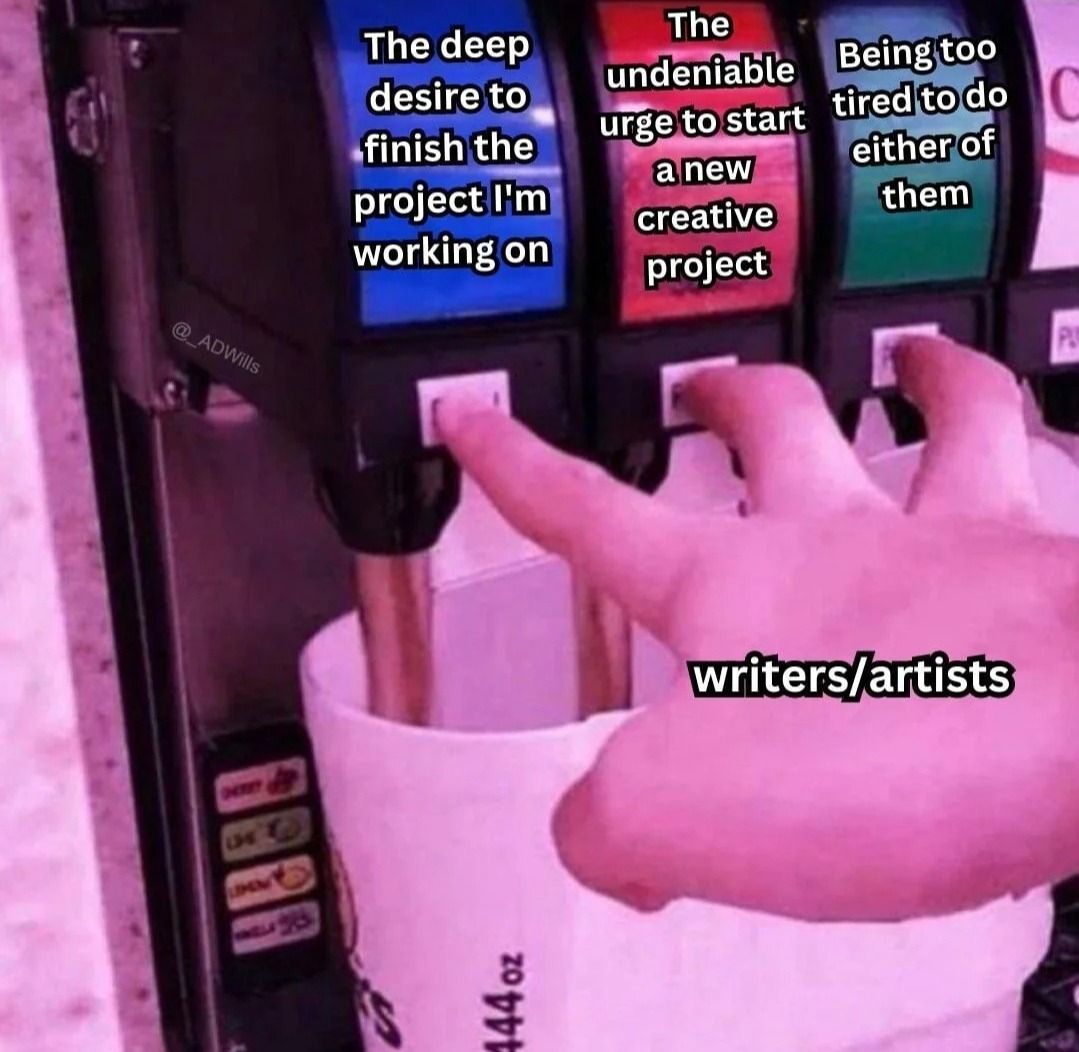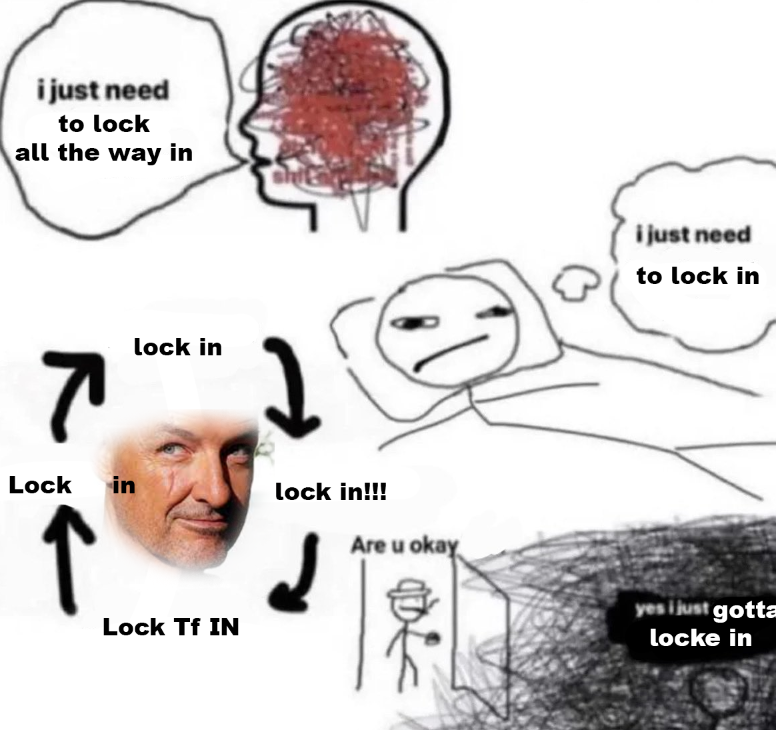Issue 85: Making choices
Ever since I chatted with Meera Lee Patel at the end of last year, one thing in particular has stuck with me:
If I was ever going to accomplish the things I wanted to accomplish in my life, in my career, I had to be very straight about what those goals were, who they were for, and what I was going to say no to in order to make time for them.
Motherhood changed her relationship to creativity, as “it became so obvious that my time did not belong to me anymore.” It meant reflecting on her true artistic goals, sharpening her focus, and setting clear boundaries.
A recent piece I read in Memoir Land was even more direct with its title, “Writing is About Making Choices.” I forget this simple fact often. If I set a rejection goal, I focus more on submissions. If I shift my attention from projects in progress to start some shiny new story, it’s harder to ever finish things. If I decide to attend a writing class on a weekend, it means giving up time I could’ve used to play Animal Crossing or see a friend.
Amy Shearn acknowledges this rude reality (“Adding insult to injury! We are responsible for the outcomes of our choices”) but provides a few helpful questions to guide decision-making around what writing project to focus on first:
- What would you need to complete each project (in terms of support)? Which of these needs is it possible to serve in your current actual life?
- What is your ultimate goal as a writer? (Focus on goals you are in control of.)
- Which project excites you the most?
Short fiction has been my main area of focus these last few years. I’ve learned a lot about the form, experimented with new ideas, and learned to revise and complete stories. I’ve gained experience submitting my work. It’s allowed me to attend workshops, where I’ve learned from teachers and fellow writers, and built up community and confidence that I can carry forward into my writing practice.
However, I’ve always known that my ultimate goal is to write a novel. Lately, the thought that keeps me awake at night is, “If not now, when?”
In Jane Friedman’s “Ask the Editor” column, one person asks, “How Can I Set Aside the Cacophony of Writing Advice and Just Write?” Friedman encourages them to dive more deeply into specific reasons that might keep them from writing, such as the fear of missing out, needing more knowledge to face certain craft challenges, or wanting to be part of a literary community. The two reasons that I saw myself most in were these: (1) not writing is easier than writing and (2) you’re trying to prepare now for future problems you don’t have.
Friedman acknowledges that we naturally need rests and pauses from our writing, “but if you develop a habit of avoiding the work, especially by reading writing advice or attending conferences and classes, ask yourself why.” As my friend Carolyn Yoo writes, “I am questioning if I have been pursuing feel-good productivity over devotion to my own creative practice.” I admit I sign up for one-off classes or craft intensives sometimes more out of curiosity than out of necessity.
“Preparing now for future problems” articulates another aspect of “feel-good productivity.” Events or panels demystifying the publishing industry are incredibly helpful. I’m curious about how agents and editors work with authors. But I know that, while this is all valuable information, none of it is actionable until I have a complete manuscript. Friedman’s advice has become my new mantra:
Don’t focus on problems that exist downstream. Focus on the problem that you face now. The experts will be there when you need them.
To return to Shearn’s prompts, if I’m being honest with myself, what I need most to complete a project is time. At this point, workshops or residencies in many ways would be distractions from doing the work, as I’d spend more time on applications or preparing for workshops than adding to my own draft. I don’t need more classes. I don’t need to be submitting to lit mags. I need a work/life balance and a sustainable writing schedule.
On Seth Godin’s blog, he recounts Steven Pressfield’s idea of “Resistance.” Project resistance is “the internal force that keeps us from doing our most important creative work.” It’s inevitable and includes many contradictory symptoms, usually specific to the type of creative work and what stage it’s in: aiming too high, aiming too low, refusing to set a budget or deadlines, using deadlines as fuel, etc. Godin concludes that our choices are really what allow us to keep going:
These behaviors may seem as though they happen to us, but ultimately, they’re a choice. A skill we can learn, a habit we can unlearn. We can be kind to ourselves, focus on the goal and get back to the project.
A friend and I were chatting a few weeks ago about how after years of leaping at external opportunities, now was our time to turn inwards. We declared this year our “no submission year” so we can focus on first drafts of novels. It is, of course, good to still be engaging with literary communities, but I must remember that a writer must write. There is no amount of adjacent productivity that is a substitute for doing the work. Carolyn summed up my realization more eloquently than I ever could: “the most threatening distractions sit adjacent to what we most desire.”
All of this is to say that, in an effort to prioritize my writing, I’ve decided this newsletter will go from biweekly to monthly. I really love having this space to reflect on craft lessons, the writing life, and the many aspects of creativity, but as Jami Attenberg says, “sometimes you will make choices that other people might not be happy with—but for sure you will be happy with yourself because you claimed your time to write.”
What are you saying yes to this year? What are you saying no to? What project resistance are you encountering and what choices are you making to work towards the goals that matter most to you?


Creative resources
- A helpful thread from Rebecca Turkewitz about small press book promotion
- Although I’m no longer reading 52 books in 52 weeks, I did appreciate this post on “transparencies” (not tips) for reading a lot: “I think, when it comes to our disposable hours, we make time for the things we want to do.”
- “A Writer’s Lament: The Better You Write, the More You Will Fail” by Stephen Marche
- Rebecca Jennings on the economic and technological shifts that have made any creative worker into their own self-promoter: “Under the tyranny of algorithmic media distribution, artists, authors — anyone whose work concerns itself with what it means to be human — now have to be entrepreneurs, too.”
- A really comprehensive guide from Write or Die on Everything You Wanted To Know (and Plenty You Didn't) About Lit Mag Submission Guidelines
Recent reads & other media
I finished Bliss Montage by Ling Ma, her surrealism-infused short story collection. My favorites were “Peking Duck” (a meta story that wrestles with questions of authorship, the burden of representation, and whether second generation kids can capture immigrant experiences accurately) and “G” (two friends/frenemies take drugs that turn you invisible). I’m reading Kaleidoscope by Cecily Wong and the BookTok sensation, Rebecca Yarros’ Fourth Wing.
E and I watched Godzilla Minus One Minus Color—the black and white version really worked for the scenes on land, but some of the magic was lost during the oceanic action sequences. I’d never seen any Godzilla movies before, but really enjoyed this standalone movie which focuses on Japan’s “national anguish, trauma, guilt and grief” in the aftermath of WW2. It then inspired me to do my annual Pacific Rim rewatch, this time roping in my sister to watch it with me.
I also rewatched season one of The Bear with E, and we started the new Mr. and Mrs. Smith on Amazon Prime starring Donald Glover and Maya Erskine.
Recently read short stories: “Office Hours” by Ling Ma, “Found Objects” by Jennifer Egan, “All Will Be Well” by Yiyun Li
Note: Book links are connected to my Bookshop affiliate page. If you purchase a book from there, you'll be supporting my work and local independent bookstores!
~ meme myself and i ~
Writing a scene where two characters are flirting. An inadvertent opening scene to a horror movie. YOU NEED THIS VIRAL PRODUCT! Trying to decide if I should go to bed or not. That eye conversation at dinner. Plotting your book and realizing you left out critical information.

